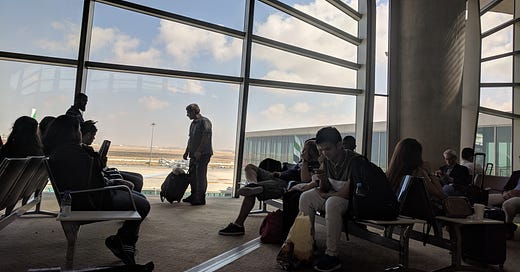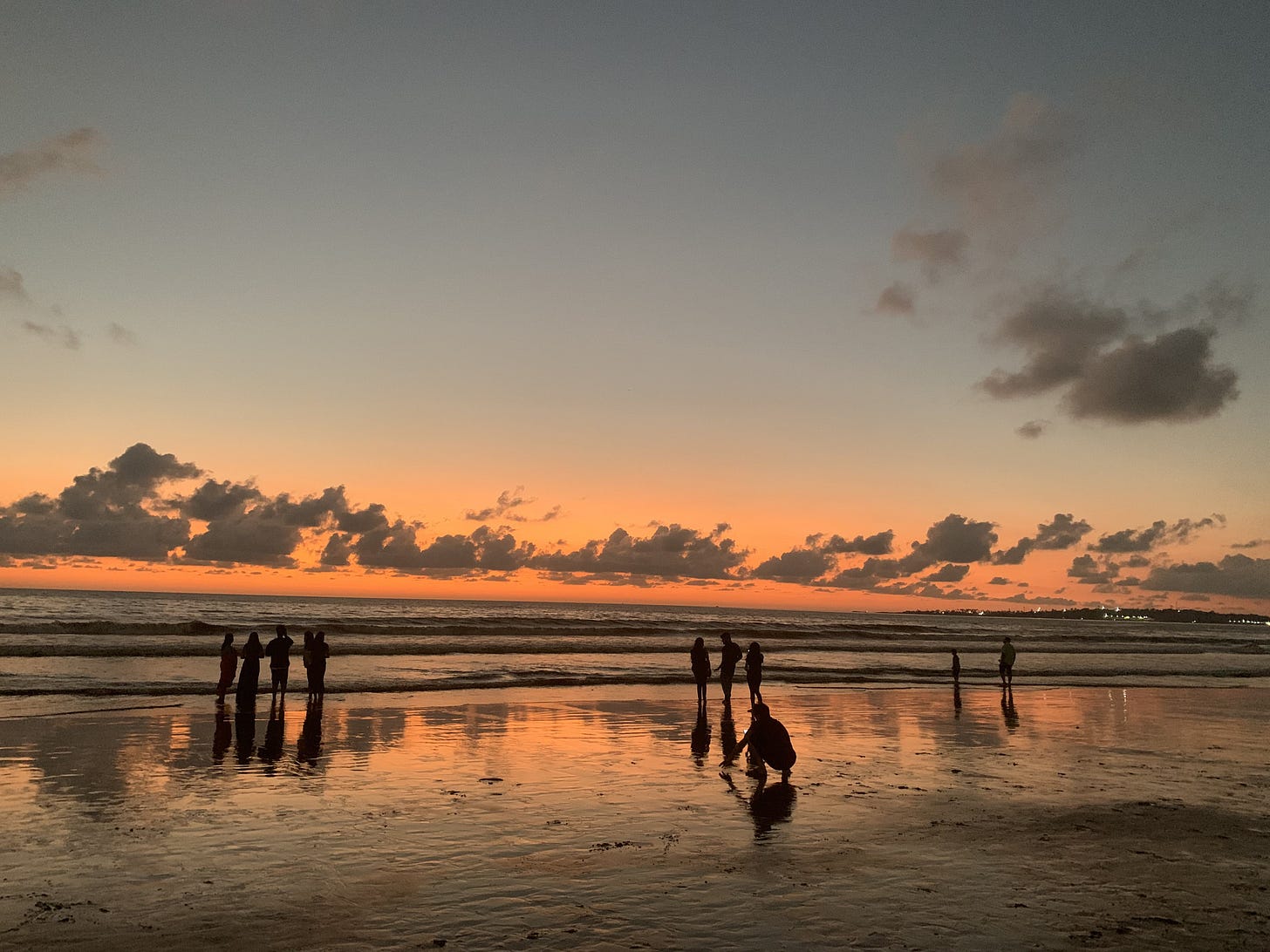“Do you think I have boundary issues?”
The abruptness of it took me off guard on the call, and so I mumbled a ‘no, of course not’, out of the fear of not wanting to be caught without an answer.
Two days later, as I replayed the conversation in my head, I realised I was correct after all. She doesn’t have boundary issues, she is just someone happily vulnerable1. Someone open about her feelings, her desires, even confusions all the time. I have often thought of it is her great strength.
Most people avoid vulnerability out of a sense of shame.
But what is shame if not fear? To not do things out of shame is to imply that if I was not afraid I would do it.
Vulnerability opens doors, shame shuts them.
Trust, in my mind, is how you overcome shame and your fears. The faith to be open and vulnerable, to make mistakes, comes from a certainty you somehow carry that I can see this through.
I write all this today, because Daak was born in vulnerable times. It was a space for that trust (in the world, in each other, and within us) to take root and grow. It was an attempt to say that let the stories of art and artists, through words and poems, remind us to keep faith, to trust the world, to be open to it, and to open yourself up to it.
Yet, in the years since, the world outside has ceded more space to despair2. And trust and these words that I write arrive carrying a sense of reduction. That they are not enough, that they are just that, words. That the world needs less of this and more of some other doings.
These words then need to trust themselves better, and they need to find the strength for that elsewhere, knock on some new doors.
The number of things that has to happen for even two people to come together is often underestimated.
To then see that a few hundred of you have come to read these 80 issues over the last four years almost seems a miracle. Imagine all that had to come in and be let out from your mind for you to have thought, ‘this might be interesting’.
I am grateful for all of them.
This then is goodbye, and like how it often happens in this world, it is abrupt and imperfect. Bombay Daak’s 80th issue, and the last of its fifth season, the last of its seasons.
New Homes
The season started with my ancestral house in Kerala. I was hoping to write this from there. But it is from Daak’s home that this issue now arrives, and it is fitting, a bid adieu as it were from Bombay.
This is our new home, it took two years from my life. Once done, I had a detached relief of it all, a weight that was lifted. The house will carry its own destiny, like all homes do, I hope it has a life filled one like the last one did.
Incidentally, last Friday, the roof of the old house caved in after withstanding the last of the rains, creating a myth of its own in old Odanur.
Old Posts
Occasions such as this is always a perfect time to share some of the posts that I have enjoyed putting together for you the most over the last few years:
009 - Mist Gets in the Eyes
023 - Unchained Perspectives
027 - A Language for Feelings
036 - Breath
041 - Old Haunts
057 - To Have Briefly
073 - How to Eat a Book
New Books
Recently, after a long time, I switched to reading contemporary fiction. I read Yellowface. And it brought back a question in my mind — is it just me or has the whole book writing business in fiction become too meta? As if all writers are writing only for other writers now. And those it is only writers who read books because Iowa told them they must, and is it a wonder not many read anymore?3
Perhaps not. Nevertheless, as the winter sets in, I am looking to pick these off my shelf:
David Whyte’s Consolations
Anthony Sattin’s Nomads
Geoff Dyer’s But Beautiful
Edwin Abbott Abbott’s Flatland
But I am more likely to end up heading to Tolkein’s shire or maybe I will feel too out of touch with the world and read something brand new. Books are accommodating.
Two weeks ago I picked up Han Kang’s The White Book, and last Sunday The Seduction of Delhi.
Old Days
On an October 2, like today, after a strange and abrupt happenings, I walked to the beach in the evening and as if mimicking my day, the sky changed hues by the minute, and gave me a minor celestial spectacle. I gave a bit of myself to the sea in return.
I wonder if the genesis to this, the Bombay theory of clouds, was sown that evening. But that day I came back home and wrote the allegory of the plant4.
Today, at precisely the same time, from a cabin desk in an empty office, far away from the open sea, I write this letter, both tidings of a farewell.
New Places
Through the course of writing Daak, I got introduced to some lovely newsletters, while to cover all that I read is impossible, here’s a list of some that have been inspiring, new places for your Sundays to now go to.
Michael Estrin’s Situation Normal
Coleen Baik’s The Line Between
Samantha Dion Baker’s Draw Your World
Closer to the home ground:
I am hoping to add a few more to the recommendations space on Substack over time, many young Indian newsletter writers are finding their feet here, and it is going to be a very exciting space in the coming years.
Old Postcard
Sitting at Amman’s airport, I could barely believe a miracle had taken place. How could it be that all of one’s childhood dreams come true all at once, do these things happen outside of fiction, I mean, I even foot set on Dubai in between5. Then the hour of departure and a mischievous thought settles by your shoulder, you don’t know what more you want now, this is a whole new world you’ve been led into.
This was The Hour of Departure from The Song of Despair by Neruda. 6
In her context and this issue’s, I venture to say vulnerable as an ingrained if not a deliberate choice of being open to the world, but how am I to really know if I am true?
I never brought the world as it is into these issues, partly because they were an escape for me from it. But in the increasing and growing calamity that is the world, to not lend a voice to anything feels justifiably wrong. And when I think of my words, I think of Pankaj Mishra’s words, The Shoah after Gaza and then of Ukraine and Sudan as an afterthought and all the other beautiful places that stands awaiting ruin. We are all victims to the narratives we choose and then believe as gospel. No one hears the other and the pursuit of truth, (the irony of today’s date) is left bereft of meaning.
Of course an exaggeration, and personally knowing someone who reads, as it were for pleasure and not harbouring notions of writing, I don’t buy this argument myself. There are those who want to eat the world whole and those who want to make new ones, and what is one without the other.
Which you will find in the Frankensteins in the Wild post above
A Malayali community dream







